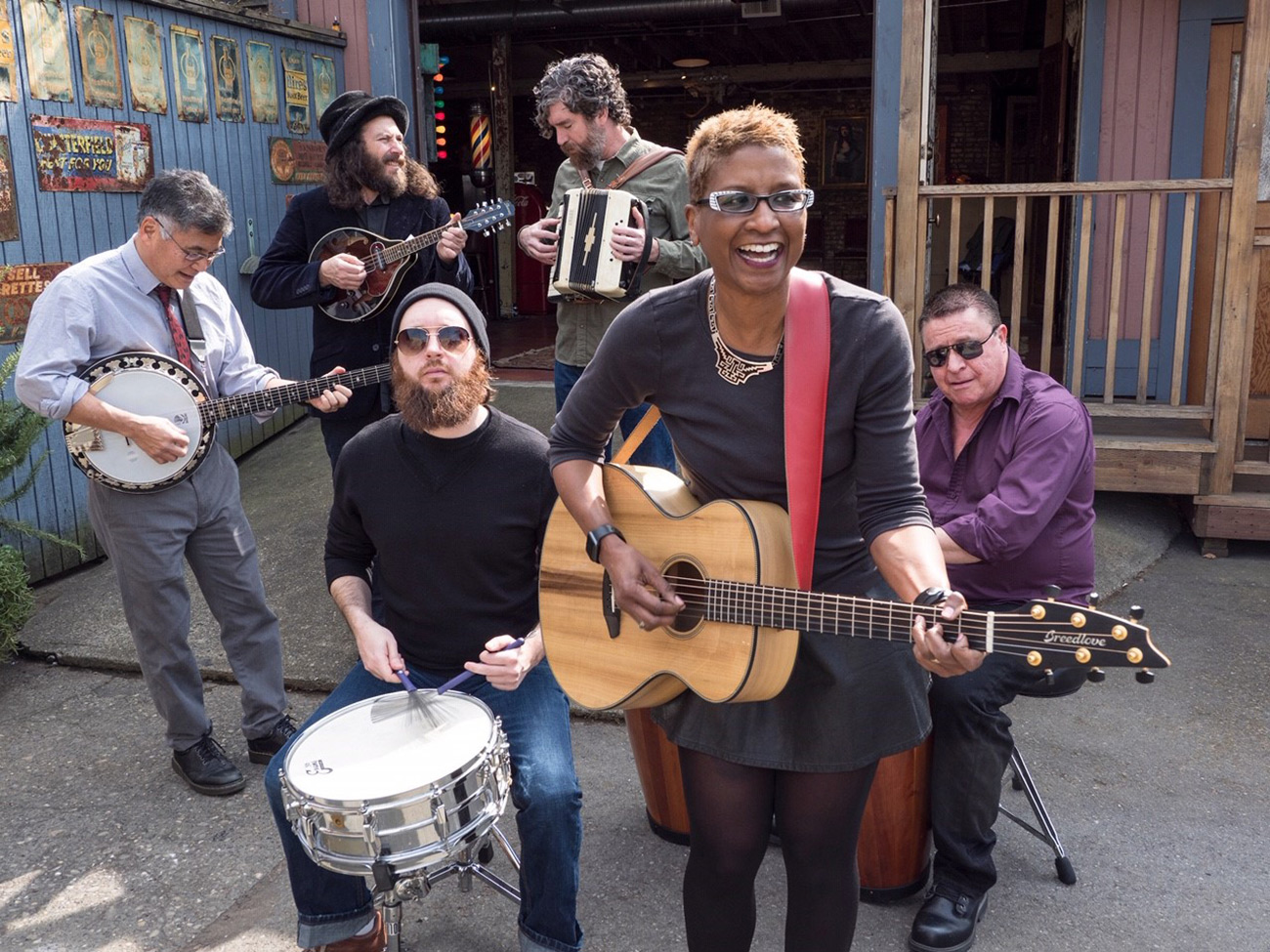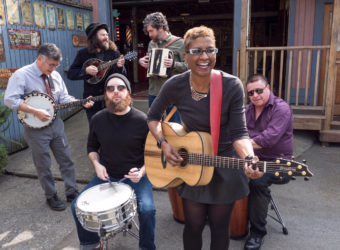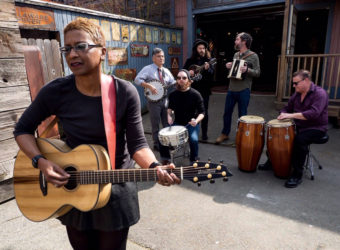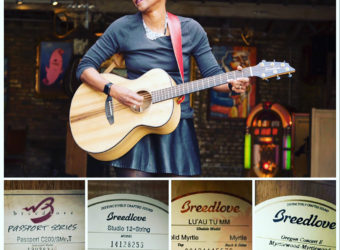
Seattle bandleader takes inspiration from Eddie Vedder to overcome tragedy
Tragedy can, in unexpected ways, birth joy.
In 2005, Paula Boggs was on top of the world. A decorated former Army officer/paratrooper, high-powered lawyer and federal prosecutor, Boggs was in the midst of a decade’s service as chief legal officer at Starbucks when she got a phone call informing her that her sister-in-law had been killed in a traffic accident.
Boggs stepped up, helping to raise her youngest brother’s child.
She also stepped down, eventually taking the new situation both as a signal and an opportunity.
She decided it was time for a new career, one she had dreamed of, but set aside. She became a full time musician.
“It was just the most jarring, sad thing,” Boggs says of the crash and its aftermath.
“My spouse actually encouraged me to pick up my guitar as a way to grieve. And once I did that, it was the point of no return. That was the engine that got me back in the game.”
The peripatetic Boggs had played guitar since her youth.
“After a couple of false starts with other instruments, I came to guitar and it was my jam,” she says, chuckling at the memory. She even gave lessons around the neighborhood—a nickel a shot.
Finding an outlet in the folk mass of her Catholic church in Chesterfield County, Va., Boggs composed new songs for services, pursuing praise music as a creative sideline as she moved through college and law school.
Entering the corporate world required a more rigorous commitment and, despite the fact that the guitar always felt like home, Boggs fell away from the instrument.
“The upshot was that for probably a decade-and-a-half, I didn’t even look at my guitar, let alone play it. I had persuaded myself it was a ‘that was then, this is now’ sort of thing.“
Fast forward to late fall 2019. By this point Boggs, who lives outside of Seattle, is the leader of a successful eponymous touring band; singing her own song for large crowds; and garnering, you guessed it, praise for her ‘Seattle Brewed Soulgrass’—“a stew of soul, folk, bluegrass, world and jazz.”
As with her previous arcs, Boggs is flying high, in total command of her trajectory, when tragedy says hello again.
This time, it’s in a lesser, but still potent form.
“It was one of those wet, cold Seattle days, with lots of slippery leaves,’ Boggs recalls, the pain still evident in her voice. “I was running late for a rehearsal and carrying too much equipment. I just wiped out, dislocating and breaking my left thumb.”
That’s a setback custom-wrought to sideline a lifelong guitar player. But this, as you can see, is Paula Boggs—who, again, took the trial as a signal and an opportunity.
The signal was to rethink her music and its presentation. The opportunity was to tackle ukulele for real, as opposed to the occasional pastime it had previously been in her musical and onstage life.
Boggs came upon her first of four ukuleles while on vacation in Hawaii a decade ago. But seeing Seattle neighbor Eddie Vedder on tour behind his 2011 album Ukulele Songs was the gateway drug to taking it seriously.
“I just fell in love with the instrument on a whole new level after seeing and hearing Eddie perform live,” she says.
The easier fretting aspect of the diminutive box and its nylon strings meant that, post fall, Boggs could ease back into performing. But she found, in the instrument’s distinctive tone, a new voice for writing as well.
“It’s been my lifeline over these past months. Before my injury, it was sort of a second-class citizen, now it’s the big kahuna.”
A longtime Breedlove artist, Boggs first saw the updated Lu’au Series while visiting a music merchant’s convention in Anaheim Calif., this January.
“I thought oh my god, I’m going to have to get one of those.”
She settled on an all myrtlewood Breedlove tenor, and loves that it echoes the visual and sonic beauty of her favorite guitar—a similarly sustainably sourced all myrtlewood Made in Bend Oregon Concert E.
“It’s beautiful. The wood is very special and, even without amplification there’s a sweetness and depth to its tone that excites me. It literally looks like a shrunken version of my guitar. The two of them together, on any stage, look stunning.”
Boggs, who remains active outside of music as a public speaker, philanthropist and fundraiser, is nothing if not productive—just watch her TEDx talk, “Who Am I?”
She immediately, productively, took to the Lu’au as her main creative outlet. She’s been writing a bevy of new tunes, exploring different rhythms and discovering what many dedicated players already know. It’s a real instrument and a real inspiration.
“My thumb forced me to do things differently, and some of those differences we’re not going to abandon just because I can play guitar again. We’re a new band because of this injury and I don’t want to lose that. I think the uke, and what the uke means to me now, is a big part of that.”
Boggs, who often fronts the band solely as a vocalist of late, says that perhaps the biggest revelation to come in the wake of her mishap is that she doesn’t need a guitar to express herself. She just needs music.
“The ability to communicate the meaning of the lyrics, through my voice and my body, has gone up a notch. I’ve talked to the band about playing guitar less as we go forward. And there’s something about the appearance of a ukulele that puts people at ease. I internalize that and understand that better now. Because of its size, I find that I am more kinetic in my performance. Because it’s so small, I can twist around and jump around and bend up and down. It’s great.”



